Congressman Dan Crenshaw on Partisanship, ‘SNL,’ and His New Book ‘Fortitude’
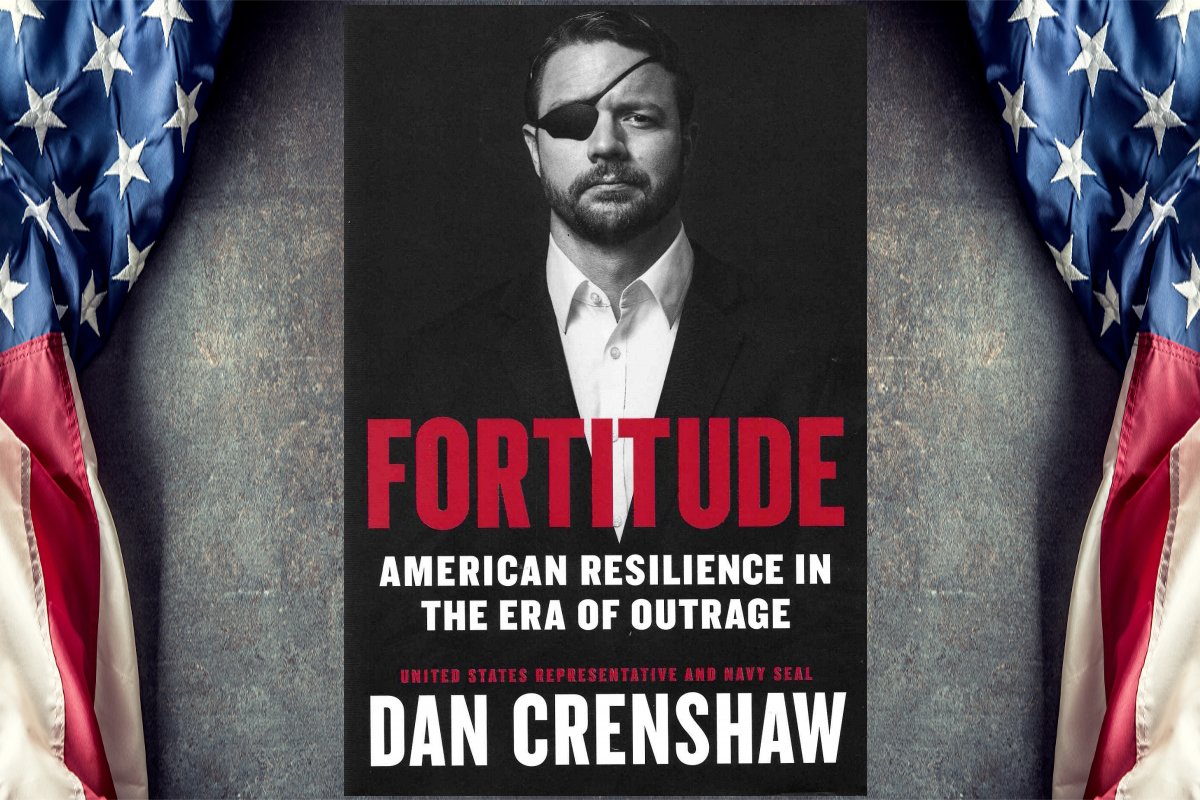
Image courtesy of Dan Crenshaw.
Texas Republican House Rep. Dan Crenshaw is a former US Navy SEAL who completed five overseas deployments. In 2012, Crenshaw’s life changed forever when he was hit by IED shrapnel during a mission in Afghanistan’s Helmand Province. He lost his right eye — and very nearly his left as well. After several surgeries and months of recovery, Crenshaw eventually regained sight in his left eye, which was nothing short of a miracle, according to the lead surgeon. Crenshaw went on to deploy twice more, once to the Middle East in 2014 and then to South Korea in 2016.
After a decade with the SEAL Teams, Dan retired from the armed services in 2016 as a lieutenant commander. During his decorated military career, Crenshaw received several medals, including two Bronze Stars (one with Valor), the Purple Heart, and the Navy Commendation Medal with Valor. Upon his separation from military service, he earned a master’s degree in public administration at Harvard’s Kennedy School of Government.
In 2016, Crenshaw ran for and won the US House seat in Houston’s 2nd District, vacated by retiring Congressman Ted Poe. As fate would have it, the race ended up in the national spotlight when Saturday Night Live cast member Pete Davidson mocked Crenshaw’s eye patch. The remarks created quite a stir in the national news media. While many on the Right demanded Davidson’s head on a platter, the Congressman-elect showed incredible poise and accepted the comedian’s apology seven days later on the next edition of SNL.
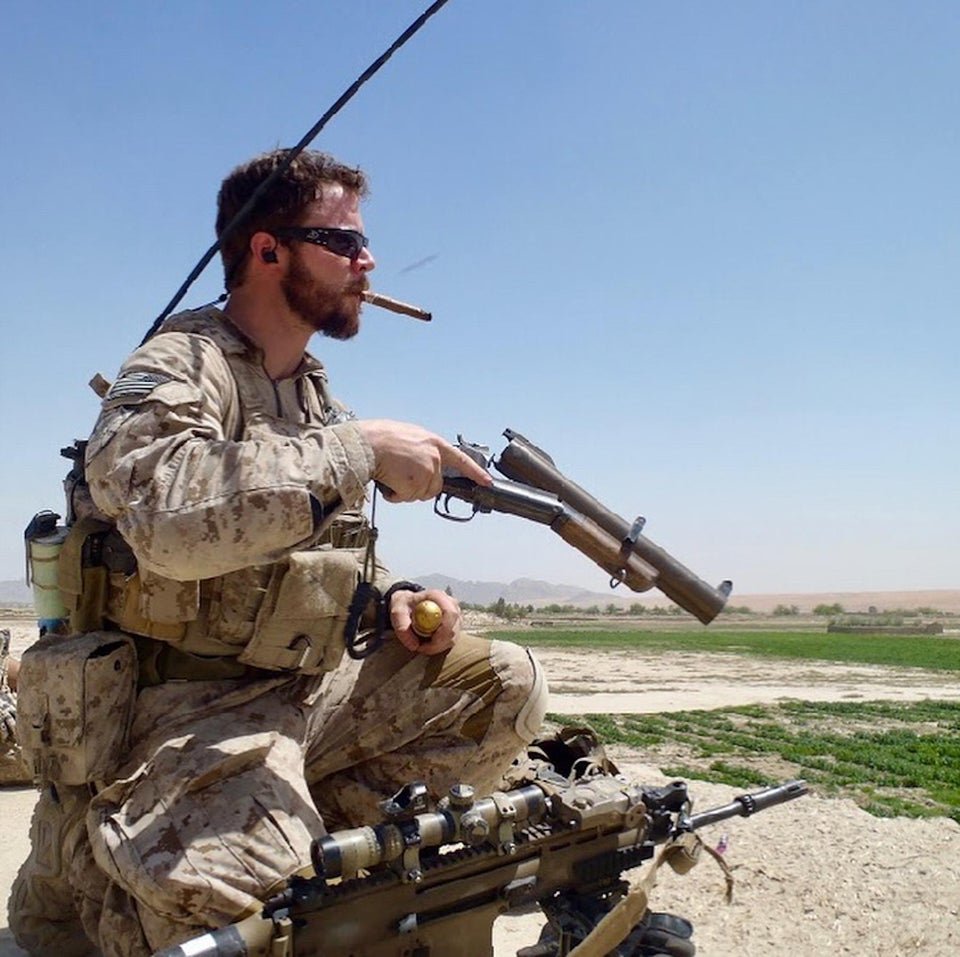
Crenshaw’s new book, Fortitude: American Resilience in the Era of Outrage, recounts his combat injuries, struggle to recover his eyesight, and the backstory of his SNL experience. Most importantly, the 250-page read also shares the Congressman’s unique views on neutralizing the divisive toxicity that threatens American culture.
Coffee or Die recently talked to Crenshaw about Fortitude and post-COVID-19 current events over our morning coffee last week.
COD: Good morning, Dan. Got your coffee?
DC: It’s still brewing.
COD: Coffee seems like a great place to start. You mention in the book that you had a penchant for Starbucks white chocolate mocha. Is that still true?
DC: Not true now. It was true at the time — during that period of my life. I still like a good mocha, but these days it’s such a hassle to go get that. I have my own way of doing it: I get a tall mug, add two pumps of chocolate and three shots of espresso — so it’s a light but strong mocha if that makes sense.
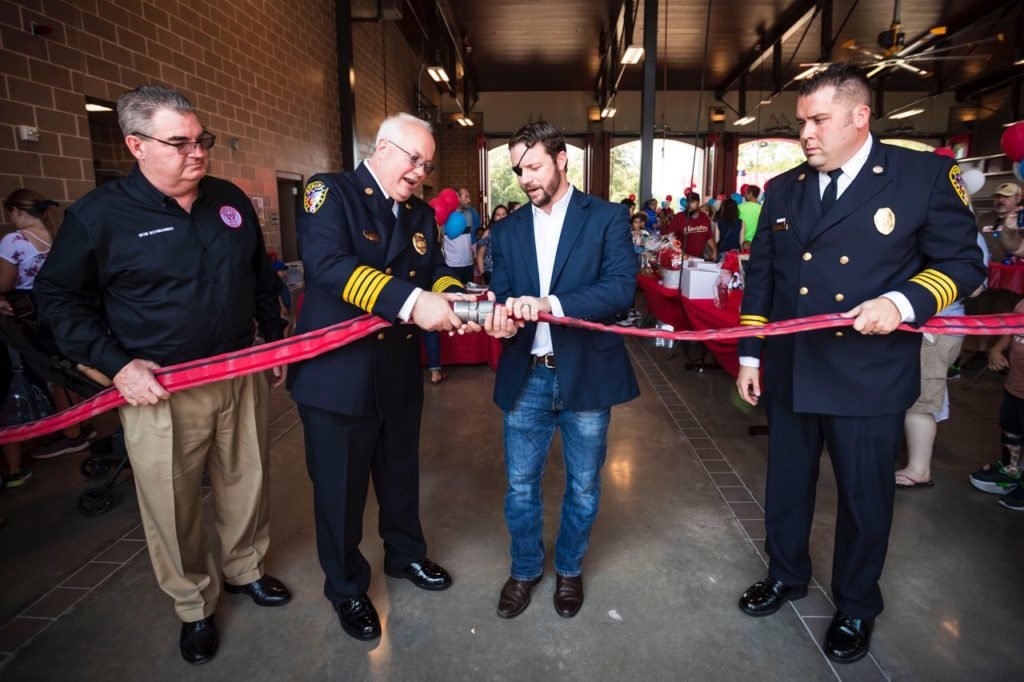
in Texas on Oct. 8, 2019. Photo courtesy of @DanCrenshawTX on Twitter.
COD: Since you’ve already spent time with us for an 11 Questions & A Cup of Coffee interview, we should probably talk about the book. The opening chapter wastes no time getting to the point. You discuss the current social trend of being pissed off and offended about nearly everything. In your wildest dreams — when you wrote this book in the pre-COVID-19 world and American culture that preceded the George Floyd shooting — did you ever think you’d see the chaos we see today?
DC: Geez. I guess I did to an extent because I wrote a whole book about it. I could see it beginning to bubble up. The last chapter is basically about the tearing down of the American story that Black Lives Matter and the 1619 project attempt to do. When COVID started, I would quip that — because we’re going through this difficult time — the term “microaggression” would be laughable by the time the fall semester started and college students would have a renewed way of thinking about life because they gained some perspective. Turns out that was wrong — I mean [laughs], like really wrong! That tells me I obviously diagnosed the problem, and a lot of people have, but the problem was likely bigger than we perceived it to be. And that’s obvious now. People’s capacity to deal with hardship was far less than I thought it was. The willingness to engage in toxic narratives, toxic behavior, and the toxic outrage culture has become the preferred option for far too many Americans. So it is worse than I thought.
COD: You have to wonder if the situation is truly as bad as it’s being reported. I’m not sure if you saw the recent story about Ariana Pekary, the MSNBC producer who resigned due to her frustration over the lack of diversity of thought in the editorial process today. Many would say that journalism as we knew it is dead — so much of the news is curated based upon anything but fact. What are your thoughts?
DC: I haven’t seen her story. But it sounds similar to what happened to Bari Weiss from The New York Times. I guess if you’re constantly looking at all this, it probably seems worse than it is. But that being said, 60-something percent of people are afraid to share their political views, so I think it is bad. It certainly depends upon the setting — the type of work you do — but I think it really is as people say. Most of us aren’t screaming at each other in the workplace, but they’re certainly afraid to speak and worried that someone will make an HR complaint.
While not every city is burning down, like Portland and Seattle where violent crime is up hundreds of percentage points, the general toxicity of conversations and inability to express free thought leads me to believe it’s as bad as people say.
COD: I’d like to talk about the Saturday Night Live event and your subsequent appearance on that show. It seems like that experience was a seminal moment for Dan Crenshaw the candidate and soon-to-be Congressman. It really put you in the national spotlight and inspired a lot of people. Is that your perception?
DC: It was seminal for my career but not the campaign. The commentary on SNL happened the weekend before the election, which was already baked by that point. Early voting had already ended. Most people voted early, and the breakout on election day was pretty much the same as we saw in early voting. When I went on the show, I was already elected. From a career standpoint, it was of course a big thing. It made America feel good for about five minutes, then the Left figured out I was still conservative [laughs].
It’s funny how that works. What I realized from Leftist commenters is that they will fawn over any Republican who criticizes the Right, but once they figure out you’re mostly there to criticize the Left (because you’re conservative), they’re like, “Oh, you’re just another one” and then they talk down to you. You should see the Twitter comments. I’ve found that you can never appease these people. They think only good people agree with them.
This is really sad to see, and I’ve seen it in grad school as well. You tell people you’re conservative and they kind of swallow hard and say, “Well, that’s okay.” Well, I know that’s okay. I don’t need your affirmation. They think they’re being so big and fair-minded because they’re talking to a conservative even though he’s not a “good person.” I’m sort of observing a trend I’ve seen since that moment.
So, yeah, it was a seminal moment. I think my reputation since then has turned into something wildly different than that — in a good way. I mean, I could never rest on that event to be a successful politician. I’ve had to evolve into who I am — a policy messenger is how I fancy myself.
Is the “don’t sweat the small stuff,” this “chillax,” roll-off-your-back attitude really good? I mean, we think it’s good. […] It should be self-evident these types are not doing well in life.
COD: What led Dan Crenshaw to run for office? I mean, I can’t imagine you just woke up one morning and said, “I think I’m going to run for Congress.”
DC: [laughs] I kind of did wake up one morning [with that thought]! I left grad school — the Harvard Kennedy School — in 2017 and began networking in DC, looking for policy jobs. The Kennedy School was definitely a policy school. My goal was to find a job in national security, whatever that looked like. It would have been nice to go back to Texas, but there was no policy work I could do back home, at least not for what I was good at, which was more federal-level, national security, defense stuff.
While in DC, I had a meeting with a guy who worked for Senator Tom Cotton and told me I should just run for Congress. I said, “I don’t know. Maybe one day.” If you go to Harvard, you certainly think about that because it’s a very political school — it’s like political training camp. Which is cool. The Kennedy School offers the premier master’s program for domestic politics and policy [….] The point is, you can’t leave there without thinking about [running for office]. It’s always in the back of your mind — like maybe one day if there’s a pathway to it.
Anyway, the guy asked me, “What’s your home district?” I told him it was the 2nd district in the Houston area. “Well,” he said, “Ted Poe just announced his retirement last night.” So it really was this sort of all-of-the-sudden thing. There are really three ways to become a politician: you have a lot of money, you have access to a ton of money — like a good donor network, or there’s just a window of opportunity you jump through, which is what this was.
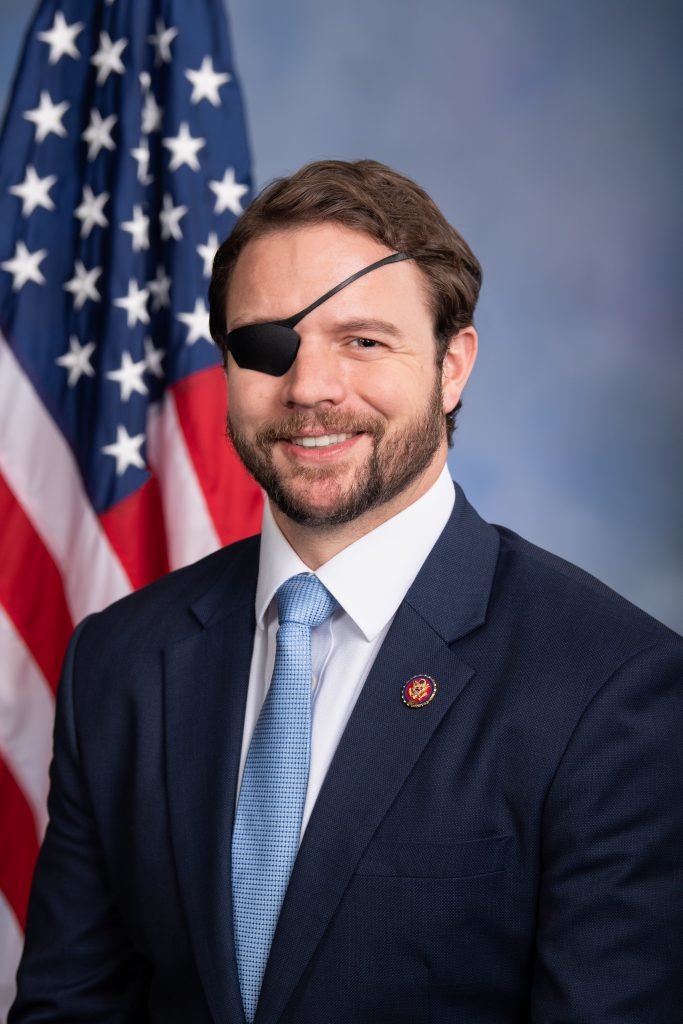
COD: So now that you’re there in Washington representing your district, what are your impressions? Is the job what you expected it to be?
DC: It’s about what I expected. I understood the system pretty well. I don’t engage in a lot of the nonsense that other members do — complaining about the sluggishness of the process or how you don’t get things done. I knew I wouldn’t get things done. I knew I was coming in with the minority as a freshman and didn’t have a naive sense of idealism.
I think too many members come up to Congress to make the populist arguments about the “corruption” and the “establishment.” Those are meaningless things. You don’t take your talking points up to argue a serious situation. Too many do that, and it’s annoying. It keeps us all down — it really does. One of the most frustrating things is how willing members are — members who know better because they know what’s really true and what isn’t — to use populist arguments.
These things are much more complex than they seem, and it’s super easy to use talking points as a club to hit your fellow members of Congress. And this about Left and Right — it happens on both sides. It leads to some of the polarization we see because the base forces you into these camps unnecessarily […] — rhetorical camps rather than policy camps. I’m not sure I am explaining that well, but it forces a tone that is completely unnecessary.
Here’s a recent example, and this is just from the Republican side: [one of my colleagues told me] “I’m going to put a bill up there that says ‘no more first-class airline tickets for Congressmen.’” We already can’t buy first class tickets. I mean, we can get upgraded because we fly all the time and have a million points. So the guy is saying we can’t get upgraded anymore? What’s he doing with that bill? It’s simply appeasing some popular sentiment — this is not even a partisan thing. The title of the bill implies that all of us just buy first-class tickets with tax-payer money, which he knows is not true. I know he’s probably doing this because people ask for it, but still, it’s our job to explain to constituents what’s true and what isn’t.
I get punished for that. Lots of people don’t want to hear something they don’t agree with. And we need to get better as a country on that point. I have a few chapters in the book that deal with that problem quite specifically.
COD: Something in the book that really resonates is your observation that we’ve been programmed by the “woke” culture to automatically assume the worst possible intentions when our political opponents say or do something that could be interpreted as offensive. It just leaves little room for forgiveness. It caused me to look inward, and I feel many of us have lost the ability of giving people the benefit of the doubt before jumping to conclusions. Where does that wisdom come from?
DC: As a conservative growing up in liberal circles, it became apparent the Left thinks the Right is “evil,” and the Right thinks the Left is “stupid and wrong.” You don’t have to debate someone if they’re truly evil — a “Nazi” or a “racist.” Nothing they say can be taken seriously so why bother debating them? That’s been true for awhile. The easiest way to debate someone is to assume bad intent. If the reason someone wants border security is just because they’re xenophobic, then all you have to say is, “They’re xenophobic.” You don’t have to talk about border security, right? The same applies to climate change. If someone has a different view on how to protect the environment, all you have to do is say they’re being paid off by the oil and gas companies. And this is how they debate — they never debate the substance of the issue. Never. They moralize it. And it’s easy to be the most moral if you’re willing to spend the most money. They attach the size of their heart to dollar signs.
So, that “intent” thing is a real problem. In the book, I talk about how people react to news headlines. What I say is you have to assume there is something deeper than the headline. Oftentimes, the journalist doesn’t even write the headline. The piece itself might not even be that bad — it might actually be balanced. So often the headline is contradicted by the story itself. It’s pure clickbait [the publisher] is looking for. They’re trying to get an emotional reaction from the reader because that’s the only way to get the click. The fact that these things contradict each other is proof, I think, of the corruption of journalism.
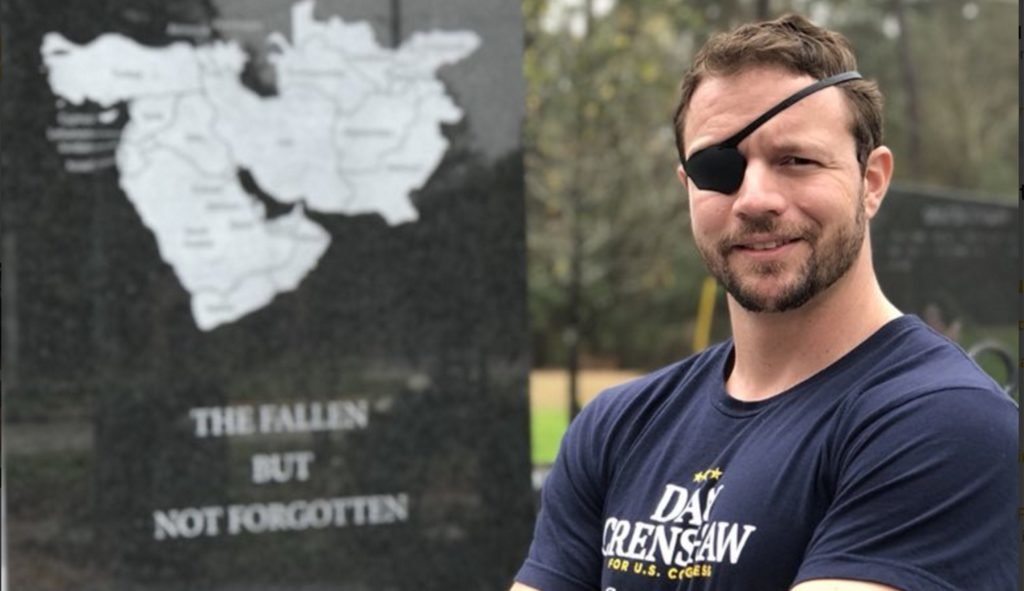
COD: In my various interviews with veterans — especially combat veterans — who have left the military to pursue leadership positions, I’m always impressed with the unique perspectives they bring to the table. Case in point is your chapter called “Sweat the Small Stuff,” which really goes against conventional wisdom. We constantly hear that life is too short to get caught up in complaining about insignificant things. “Don’t sweat the small stuff” has really become a cliche. I got a real chuckle from your approach, but there’s some wisdom there too.
DC: To your point, it’s a chapter that will immediately resonate with veterans and less so with everybody else. So I did my best to explain that philosophy to nonveterans. Everybody in the military knows [sweating the small stuff] is exactly what we do. Yeah. Sitting around in a circle, smokin’ and bitchin’ is [laughs] exactly what you do. But there’s method to that madness, which I explain in that chapter. What we’re doing is venting in a healthy way, and we’re usually venting with extremely dark humor. It’s done in a way that can be uplifting instead of toxic. I mean, complaining can be toxic too, and I explain the difference. What is the right thing to make fun of someone for and what is the wrong thing? There’s a judgment that has to happen there, and it has to be done carefully. And it also has to be some sort of purpose in mind, like an attention to detail. It’s a perfectionist sort of mentality. If we’re complaining about something, it assumes we’re trying to make it better — and if you’re not, then you’re clearly part of the problem.
Is the “don’t sweat the small stuff,” this “chillax,” roll-off-your-back attitude really good? I mean, we think it’s good. Our culture has long propped up the cool surfer guy — like The Dude from The Big Lebowski — who just doesn’t care. It should be self-evident these types are not doing well in life. [laughs] In fact, the opposite is true. So maybe there’s something to a little neurotic complaining! But it needs to be carefully adjusted. It’s easy to cross the line.
COD: So what’s next? I take it you’re running for reelection?
DC: Oh yeah. We’re in the thick of it. In the House, we run every two years. Every time there’s an election, we’re in it. [laughs] It’s quite the existence. We’ll be redistricted by the next time so we’ll see how that looks. It’s a little up in the air right now. But we’ll stay in the game as long as it will have us.
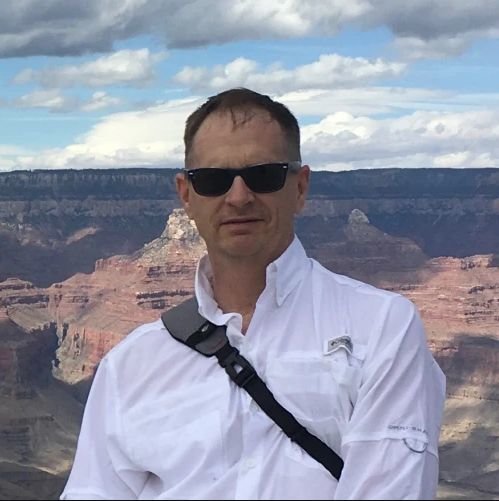
Tim Cooper is a contributing writer for Coffee or Die and has been a freelance writer for more than 20 years. He is also a certified firearms instructor and soon-to-be-famous recording artist with Fat Chance Records. When Tim is not traveling the world on assignment, which is actually more often than not, you will probably find him at a nearby shooting range or sitting behind a drum kit, staring at his bandmates in bewilderment.
BRCC and Bad Moon Print Press team up for an exclusive, limited-edition T-shirt design!
BRCC partners with Team Room Design for an exclusive T-shirt release!
Thirty Seconds Out has partnered with BRCC for an exclusive shirt design invoking the God of Winter.
Lucas O'Hara of Grizzly Forge has teamed up with BRCC for a badass, exclusive Shirt Club T-shirt design featuring his most popular knife and tiomahawk.
Coffee or Die sits down with one of the graphic designers behind Black Rifle Coffee's signature look and vibe.
Biden will award the Medal of Honor to a Vietnam War Army helicopter pilot who risked his life to save a reconnaissance team from almost certain death.
Ever wonder how much Jack Mandaville would f*ck sh*t up if he went back in time? The American Revolution didn't even see him coming.
A nearly 200-year-old West Point time capsule that at first appeared to yield little more than dust contains hidden treasure, the US Military Academy said.












